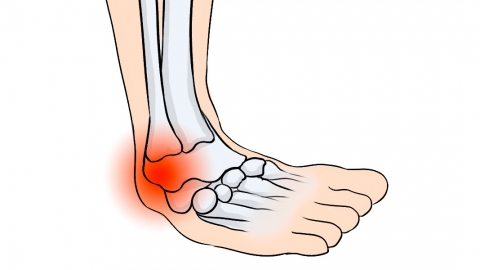How to treat foot sole pain
Generally, foot sole pain refers to pain in the sole of the foot, which may be caused by improper footwear, sole strain, flat feet, tendon sheath inflammation, plantar fasciitis, and other reasons. It is recommended to seek timely medical attention, identify the underlying cause, and under the guidance of a professional doctor, relieve symptoms through general treatment, medication, or surgical intervention. A detailed analysis is as follows:

1. Improper Footwear
Wearing unsuitable shoes, such as high heels or overly tight shoes, can cause pressure and friction on the soles of the feet, leading to foot pain. This may result in compressed toes, arch pain, and plantar fasciitis. It is recommended to choose appropriate footwear that provides sufficient space and support. Avoid wearing high heels or tight shoes for extended periods, and regularly change shoes to vary pressure distribution on the feet. Perform foot massage and stretching exercises to help relieve muscle tension.
2. Sole Strain
Extended periods of standing or walking can keep the muscles and ligaments of the foot soles in a tense state without sufficient rest and relaxation, resulting in sole strain and foot pain. Symptoms may include foot fatigue and aching sensations. It is recommended to reduce standing and walking time appropriately, allowing sufficient rest for the soles of the feet. Apply heat or cold compresses to promote blood circulation and alleviate pain.
3. Flat Feet
Flat feet may be caused by genetic factors, weak foot muscles, or loose ligaments. The collapse of the foot arch places additional stress on the muscles, ligaments, and fascia of the sole, especially during prolonged standing or walking. This increases pressure on the sole, causing pain. Symptoms may also include heel pain and knee joint pain. It is recommended to wear arch-supporting insoles or custom orthopedic shoes to provide additional support and cushioning. Perform foot massage and stretching exercises to strengthen the strength and flexibility of the foot muscles. Under a doctor's guidance, medications such as aspirin effervescent tablets, hydrocortisone tablets, or acetaminophen tablets may be considered to relieve pain and inflammation. For severe cases of flat feet, physical therapy or surgical intervention may be necessary to improve arch structure and reduce pain.
4. Tendon Sheath Inflammation
The tendon sheath is a fibrous channel that surrounds the tendons. Prolonged friction may cause tendon sheath inflammation, which can lead to foot sole pain. Symptoms may also include limited foot movement and tenderness at the tendon sheath area. It is recommended to undergo physical therapies such as acupuncture and massage at professional medical facilities. If necessary, surgical treatment may be required to open the tendon sheath and relieve pressure.
5. Plantar Fasciitis
Plantar fasciitis is a common condition that occurs when the plantar fascia is overstretched or injured, causing an inflammatory response and resulting in foot sole pain. Symptoms may also include heel pain and abnormal gait. It is recommended to rest promptly and avoid excessive activity to reduce stress on the plantar fascia. Physical therapy, such as hot or cold compresses, massage, and stretching exercises, can help promote blood circulation and recovery.
When treating foot sole pain, it is important to choose the appropriate treatment method based on individual circumstances. At the same time, maintain healthy lifestyle habits and a positive mindset.






